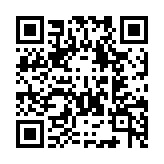I am surprised by how my thinking around pursuits, professions, and life goals evolved.
In school, all I wanted to do was work with electronics. Everything I did, directly or indirectly, was in pursuit of a profession where I would get to keep doing this forever.
The whole narrative was that you pick something you love and do it for the rest of your life. This model has shaped the thinking of an entire generation of individuals to choose a path and stick to it throughout their lives, often unable to wander off because it isn’t the societal norm.
All those questions along the lines of “Who do you want to be when you grow up?” make us think that our profession and our goal in life are something static.
Another narrative that complemented this way of thinking was that of privilege. When I was growing up, most adults around me did not have the luxury of choice when it came to picking professions. It was survival.
A society built by these adults had this abstract idea that their sons and daughters were privileged to find something they loved and could choose from a myriad of opportunities that they couldn’t afford.
Let’s assume this will result in a collective good for everyone involved. How would someone go about picking something to do? Can a 16-year-old make a reasonable decision that would shape the rest of his life?
You see, our younger selves always experience some level of information asymmetry with our current selves. And this asymmetry is amplified by our rebellious teenage know-it-all brains!
All of this made me think of people who switch professions, like a mechanical engineering graduate choosing to work in a government office or a school graduate choosing to study <insert hot trend here with a highly specialized degree> just because someone told them to, as flawed.
Growing up and being in a similar position, I realized that it was my thinking which was flawed.
Now I get asked a lot of questions about my career switches—embedded systems engineer, site engineer for a solar panel service provider, consultant at a b2b IT company, software engineer, developer advocate, and a few other odd stops in between—mainly along the lines of “did you switch your job again?” and “won’t it impact your career?” primarily by people from the previous generation. These conversations always end with a surprised look on their faces, thinking how someone could not be working at the same company for 30 years.
I have constantly tried to pick that one profession I can turn into a career throughout my adult life. Rather than thinking I have come up short with all the constant switches, I believe it is expected for a person to be interested in many things, and you don’t have to follow through on what your 15, 16, or 17-year-old self decided.
As a society, we should not expect young people to pick what they want to do for the rest of their lives in high school or while joining colleges and be more embraceful with the idea that interests will change and there is no need to limit yourself to a single pursuit.
I’m interested in a lot of things. Coming to that realization and stopping myself from the constant need to pick the one thing I wanted to do from these things has positively impacted my life. I have accepted that there will be more hard rights where I pick up seemingly random things pursuing my curiosity.
I saw this tweet the other day and remembered reading these while growing up. Something new came up every week/month (I am trying to remember how frequent these were) and captured my interest. These books might have something to do with my endless curiosity.
I'd attribute 50% of my worldly curiosity to this and their yearbook https://t.co/q7BGKSY47W
— pH (@pHequals7) February 23, 2024
Does everyone who used to read these feel the same way? Also Balarama Digest is available online now!
